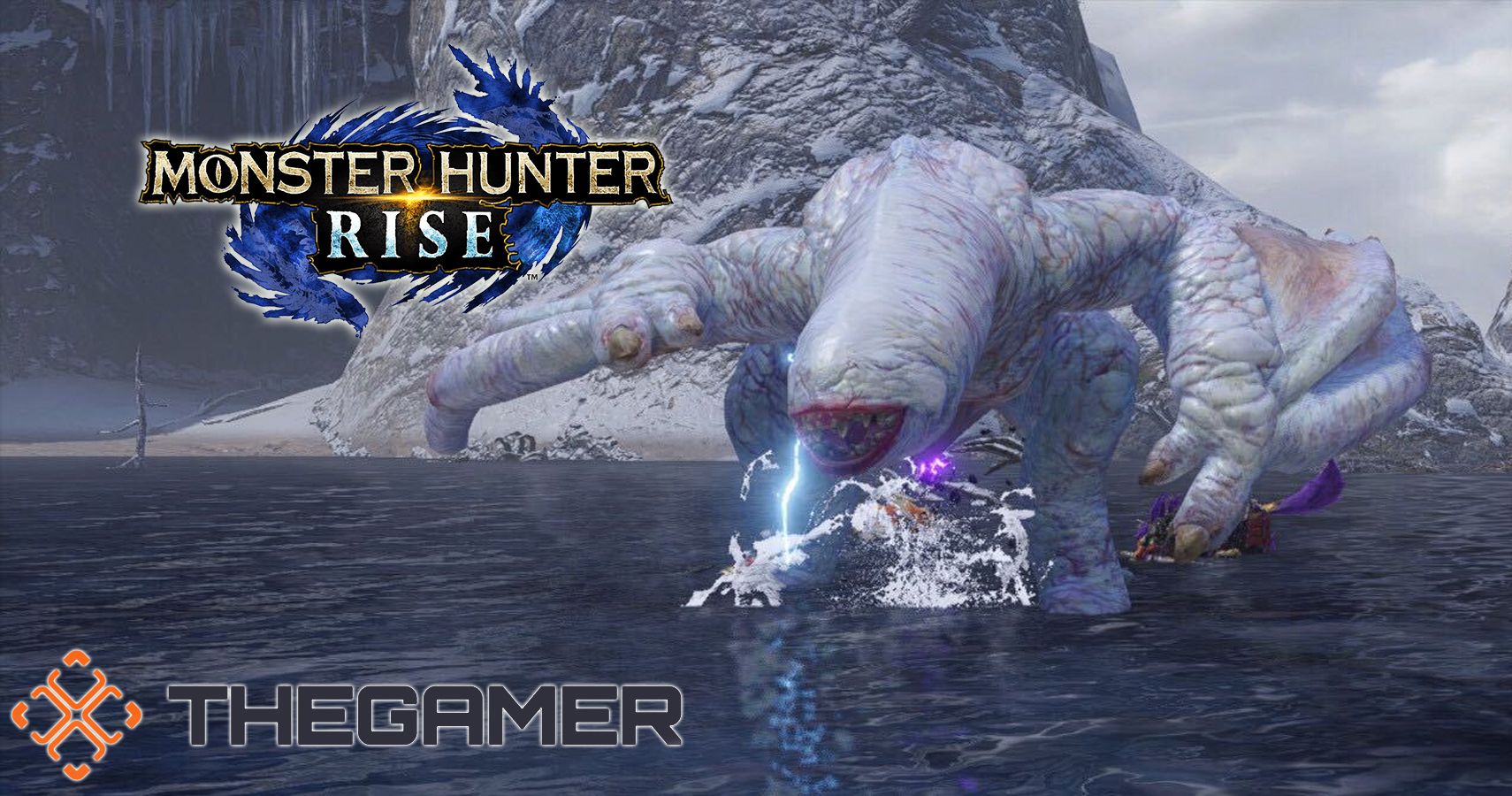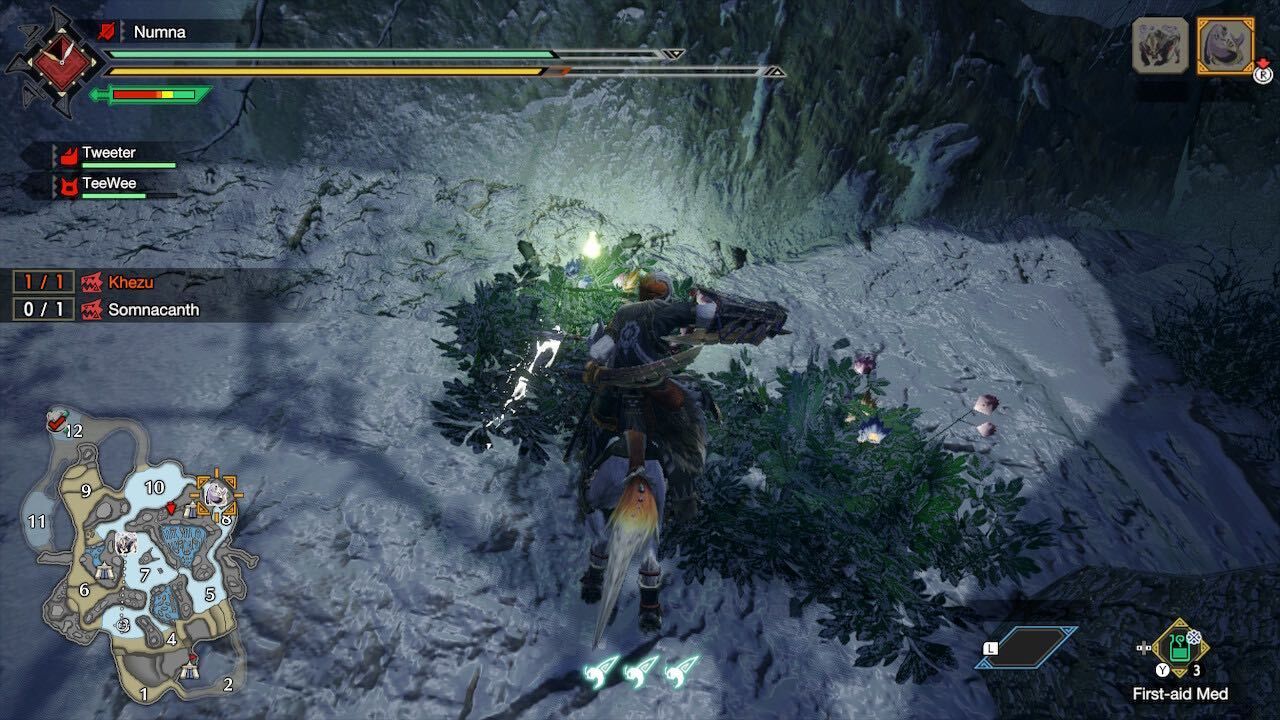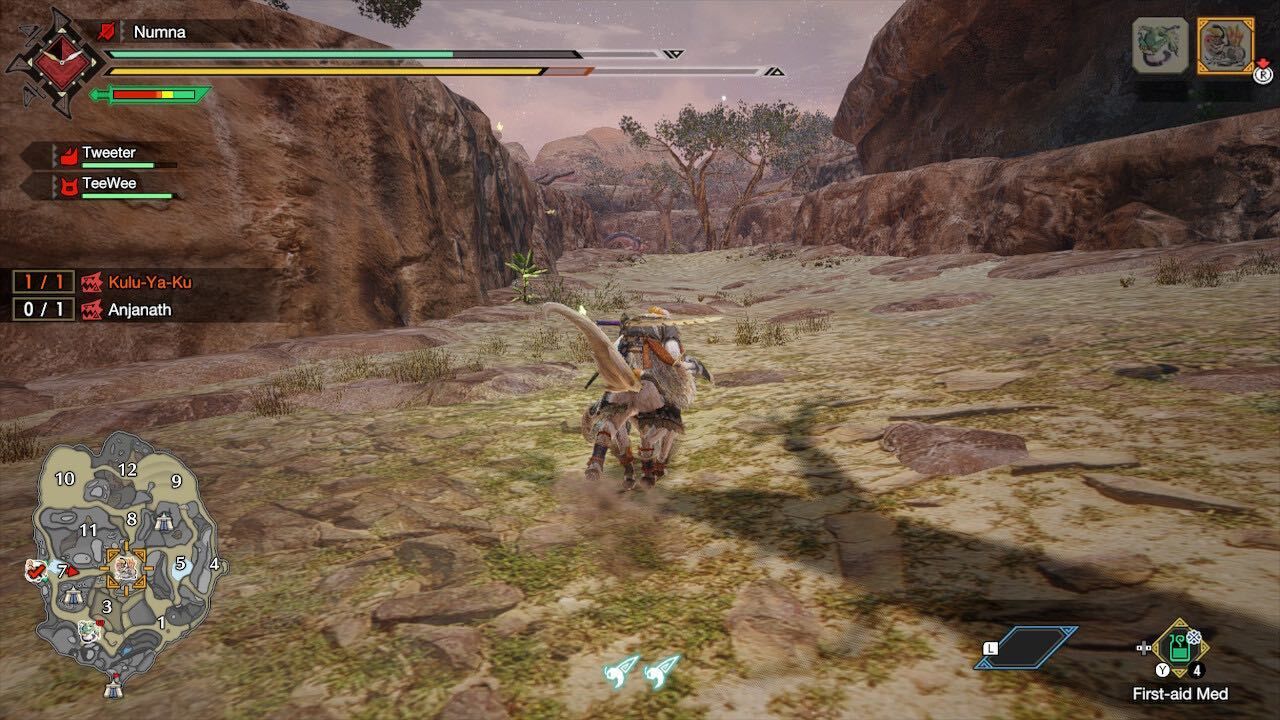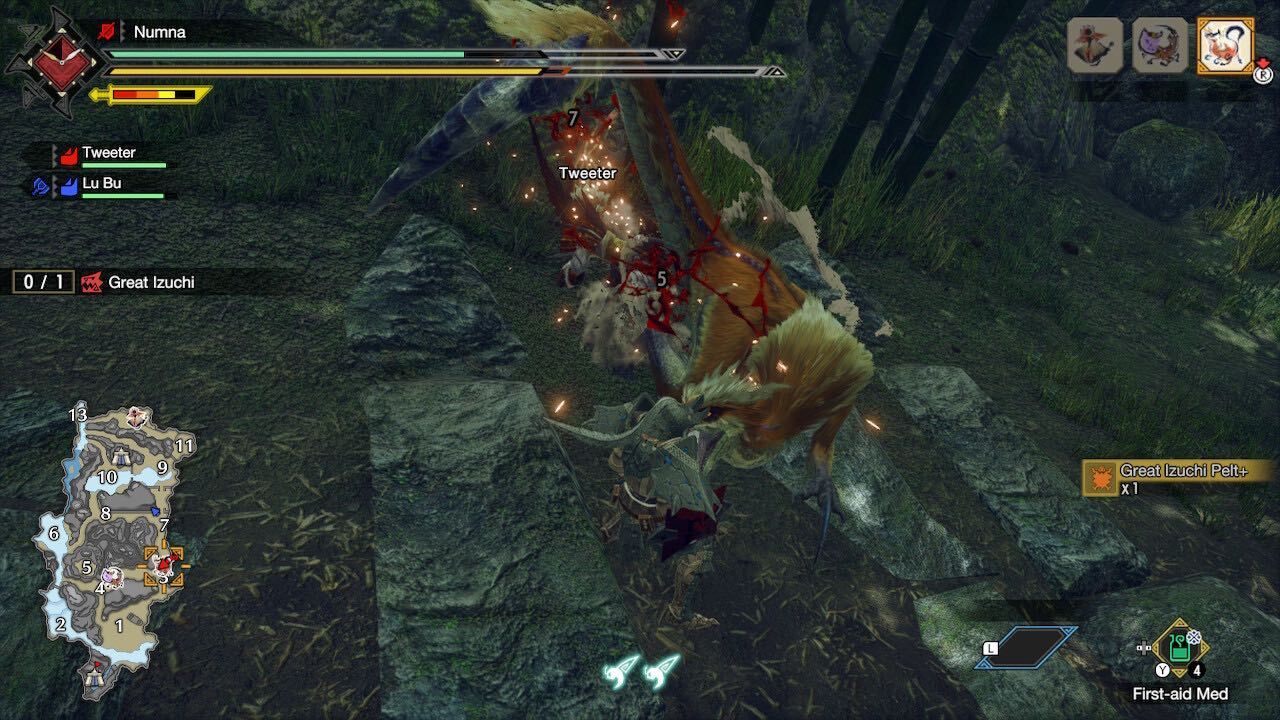Over the course of the last console generation or so, it has become increasingly rare for a triple-A developer to create a game that isn't open-world-based. Ubisoft pretty much only makes games of that type, Rockstar has been producing open-world games for nearly three decades, and even Nintendo started to get in on the craze with the launch of the Switch. Despite how these companies have had so much time to get creative with the genre, why is it that so many open-world games feel devoid of meaningful content?
This isn't a discussion about my general disinterest in the genre (if you want to call it that). I don't hate the idea of open-ended gameplay, but more how modern games tend to fill their worlds with nebulous content and a laundry list of busy work tasks. That's where Monster Hunter Rise -and the rest of the series- comes in. Here's a game that doesn't feature overly large maps and that entices players to dig around instead of simply charging headfirst into combat. It's a breath of fresh air after an entire generation where the open-world concept lost its luster.
Looking back at the history of the series, Monster Hunter tended to have a bloat problem. The earlier games actually could fit the description I wrote above about modern open-world titles. At the beginning of each entry, you'd have a reason to explore a little and craft items, but progressing roughly halfway through the game would see you stocked up on everything you could possibly need. The map then became busy work between you and the monster, robbing it of any sense of purpose or wonder. That changed dramatically in Monster Hunter World.
World eventually succumbs to that same issue, but it takes a good 100+ hours before exploring is mostly pointless. The biggest change that World made was allowing players to find monster tracks within each map. Instead of memorizing where monsters typically spawned and making a beeline to them, World put an emphasis on tracking your prey and made you act out the role of your character. By doing some light gathering before each hunt, you were pushed towards exploring each map and finding the best routes between certain areas to get to a monster's nest. It was a wise change in direction, though one not free of some repetition.
Monster Hunter Rise, on the other hand, mostly drops the tracking aspect and instead entices players to dig through each map to find hunt specific items and buffs. Nothing is stopping you from ignoring the map and going straight to the monster, but you'll be missing out on items like the Escuregot, Poisontoad, or Puppet Spider that can quickly turn the tides of battle in your favor. You'll also forgo getting any health and stamina buffs, which can prove invaluable.
World also introduced a bounty system where grabbing items within each map would net you small rewards in the form of armor upgrades. Rise takes that same system and simplifies the tasks so that players are more focused on hunting and grabbing health-related items. It may streamline the game a bit too much for veteran fans, but it has the effect of turning each map in Rise into something you'll memorize and care about.
This is all aided beautifully by the wirebug mechanic introduced in Rise. Traversal in World was hardly ever monotonous, but the Iceborne expansion's inclusion of tailraider riding automated things to a degree where you could completely zone out until standing face to face with a foe. For Rise, there are no automatic travel systems, but the wirebugs allow you to quickly scale walls and forge your own paths towards monsters. It's a lot of what Breath of the Wild did with its climb-anywhere system, just without the pointless nonsense of sliding during rainfall.
I can remember as far back as the Xbox 360 days when developers would claim "You can go anywhere" about an upcoming game. For Rise, that statement rings true and is often encouraged due to the aforementioned passive buffs. The wirebug is amazing fun to bust out on a whim and since scaling rockfaces can net you a defensive item for battle, venturing off the beaten path doesn't feel like padding. Exploration is almost a game unto itself, especially with the included expedition mode (which made its debut back in Monster Hunter 4: Ultimate).
With Monster Hunter Rise having small, dense maps that feel much larger than they are in sheer mass, it creates an atmosphere that is welcoming instead of overbearing (something that can be said of Sega's Yakuza series, as well). When I pull up the map to locate an item or see where a monster is heading, my stomach doesn't sink at the prospect of riding for 30 minutes or how I'm going to waste hours upon hours doing nothing but going back and forth between objectives. A foe running away might be frustrating, but then I get to pick up some extra buffs and items that will help me and my team. It's this holy grail of open-world design that has been severely missing for decades.
I know Rise's bite-sized design wouldn’t be applicable to every franchise. Grand Theft Auto having a city the size of Rise's maps would severely cut down on the believability of its urban setting, not to mention all of the cars and helicopters you steal would make traversal completely irrelevant. What other games can learn from the design of this series, though, is to get players actively seeking those extracurricular activities instead of throwing them in for the sake of marketing buzz. Make worlds with content that feeds back into the core gameplay loop instead of being a distraction from the main game.
It's always going to be a balancing act with open-world titles, but for my money, Monster Hunter Rise is the pinnacle of what I want to see out of these titles. If other developers take notice of Capcom's innovations here, I might finally get excited about open-worlds again.




